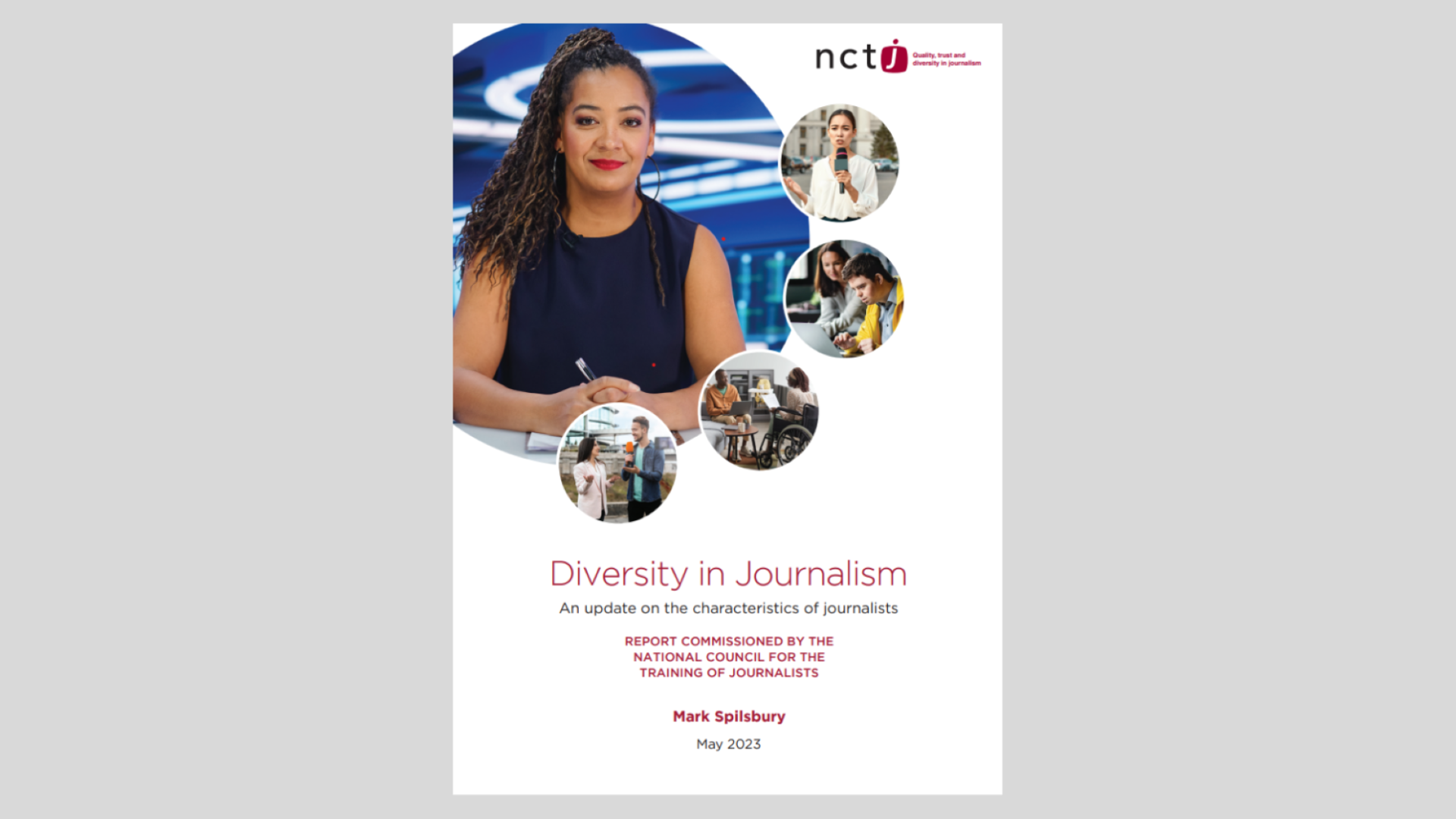
Almost a quarter of UK journalists have a work-limiting health condition or disability, reveals new report
Almost a quarter of UK journalists report having a work-limiting health condition or disability, reveals a new NCTJ report examining diversity in journalism to be published next week.
 Almost a quarter of UK journalists report having a work-limiting health condition or disability, reveals a new NCTJ report examining diversity in journalism to be published next week.
Almost a quarter of UK journalists report having a work-limiting health condition or disability, reveals a new NCTJ report examining diversity in journalism to be published next week.
The full findings of the annual report, authored by research consultant Mark Spilsbury, will be presented on Thursday at an industry event at Google UK.
To mark Mental Health Awareness Week this week, the NCTJ is revealing the new statistics relating to health and disability of UK journalists ahead of the report’s launch.
The research, based on latest Labour Force Survey (LFS) and Census data, has found that there has been an increase in the number of journalists who report having a work-limiting health problem or disability at 22 per cent, up from 10 per cent in 2016, 16 per cent in 2020 and higher than the level for all UK workers (18 per cent). This figure includes journalists who say they have mental health conditions.
Commenting on the increase in the report, Mark Spilsbury said: “This reflects changes across the economy, where we have seen an increase in the percentage willing to declare a health issue/ disability, but also an increase in the proportion of those with a health issue or disability being able to find work. Covid played a part in this.”
To help support the mental wellbeing of students and journalists, the NCTJ is working with training providers and the industry to offer resources and guidance especially related to their safety and resilience.
Following a webinar with accredited course leaders, in which tutors shared teaching techniques on resilience training, the NCTJ updated its performance standards for accredited courses. All accredited courses must offer training to ensure students are adequately supported to deal with challenging scenarios in training and assessments, and to prepare them for what they may encounter in their journalism roles.
The NCTJ has also convened a safety and resilience industry forum to address ongoing issues around safeguarding journalists. Chaired by Reuters’ interim global managing editor of visuals Joanna Webster, forum members are setting out preventative measures to help ensure all journalists are prepared for the different threats associated with safety and resilience.
The forum is looking at online safety, support for freelance journalists, mental health and wellbeing, the role of technology and the importance of training for all journalists including those in leadership roles.
Critically, the NCTJ also responded to industry concerns and made safety and resilience training accessible to journalists of all levels of experience.
A free e-learning course on safety and resilience was developed by the NCTJ with contributions from some of the country’s leading universities, as well as editors and individual experts. Topics covered include online safety and protection, managing distressing stories, resilience in the newsroom and mental health and wellbeing.
A masterclass on safety and resilience, created specifically for editorial leaders to implement preventative measures and manage situations, is also taking place on 23 June.
Commenting on the NCTJ’s work, chief executive Joanne Butcher said: “The increase in mental health and well-being issues for journalists has had a big impact on the charity in terms of the work we prioritise to support our partners. While this work is challenging, it’s not something we can shy away from and we will do as much as we can to help ensure journalists are equipped and confident in dealing with difficult issues.
“Like many other employers, we are also trying much harder to support the mental health and well-being of our people. The hard-working team at the NCTJ have to deal with difficult issues at work and in their personal lives. I want to create a culture where people feel supported and valued so things like professional counselling, flexible working and a helpline are offered to everyone at the NCTJ.”
Nicky Hudson, senior client relationship co-ordinator at the NCTJ, who is also the NCTJ’s mental health first aider, spoke of the support available to him and said: “It’s great to work in such a supportive and flexible environment, in fact I would go so far as to say it’s a necessity for me.
“Not having an expectation of being in the office 9-5 Monday to Friday certainly helps me. I’ve had a lot of change this year not least finding out I am due to become a father and the NCTJ have been great at allowing me to go to all the appointments without being anxious about asking.
“I start early on a Friday and I can even bring my dog in, which I think brings a real positivity and energy to the office. It is this flexibility that really works for me!”

